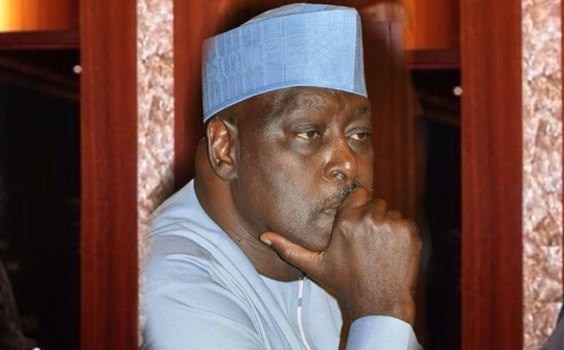Babachir Lawal, a prominent figure in Nigerian politics and a former Secretary to the Government of the Federation, expressed deep dissatisfaction with President Bola Tinubu’s administration in a revealing interview. Lawal, a chieftain of the defunct Congress for Progressive Change (CPC), a legacy party that merged into the ruling All Progressives Congress (APC), voiced concerns about Tinubu’s governance, particularly its perceived marginalization of the North and its deviation from the CPC’s core ideology of uplifting the underprivileged. He also discussed Atiku Abubakar’s coalition efforts, the divisions within the CPC bloc, and his own complex relationship with Tinubu.
Lawal revealed that ongoing discussions about a political coalition involving Atiku Abubakar, the PDP presidential candidate in the 2023 elections, specifically exclude the PDP. He described the party as an “incurable virus” and stated that the coalition is exploring the possibility of forming a new party or collectively joining an existing one, with the SDP and Labour Party being considered as potential options. The PDP governors’ recent rejection of a merger is, according to Lawal, irrelevant to these discussions. He highlighted Atiku’s significant role in the coalition talks, emphasizing that the primary goal is to create a broad-based party that accommodates diverse interests, after which democratic processes will determine leadership and candidacy. Personal ambitions, including presidential aspirations, are being set aside for the sake of this broader objective.
Lawal’s criticism of the Tinubu administration centers on its perceived neglect of the North, which he described as a “massive refugee camp” grappling with poverty and insecurity. He argued that the current government lacks representation for northerners, with key positions occupied by individuals from the South-West, particularly Yorubas. He dismissed Vice President Kashim Shettima’s role as largely ceremonial and ineffectual. Lawal contrasted the Tinubu administration’s approach with the CPC’s focus on serving the disenfranchised, asserting that the current government appears indifferent to the suffering of the masses. He suggested that this perceived betrayal of the CPC’s core values is a motivating factor for him and other former CPC members to seek an alternative political platform.
Within the CPC bloc itself, Lawal acknowledged a division, attributing it to differing responses to the current political climate. He suggested that some former CPC members, motivated by personal gain, have aligned themselves with Tinubu’s administration, while others, including himself, remain committed to the original ideals of the CPC and are actively pursuing the formation of a new political force. He stressed that while they respect Buhari, they don’t require his blessing to pursue their political goals. Their actions are driven by a sense of responsibility to the people and a desire to challenge what they perceive as injustice and marginalization.
Lawal’s relationship with Tinubu, once amicable, has deteriorated significantly. He attributed the change to the divergent paths their lives have taken and the contrasting political philosophies they now represent. He dismissed the notion that his stance is driven by personal animosity, emphasizing instead his commitment to principles of justice and equity. He argued that Tinubu’s appointments reflect a bias towards his own ethnic group, further fueling Lawal’s disillusionment with the current administration. He expressed skepticism about any potential reconciliation, stating that his motivations are not rooted in a desire for wealth or power but in a pursuit of fairness and good governance.
Lawal’s outspoken criticism of the Tinubu administration and his active involvement in the coalition talks signal a significant political development in Nigeria. His pronouncements reflect the growing discontent within certain segments of the population, particularly in the North, and suggest the potential emergence of a formidable opposition force in the lead-up to the 2027 elections. The divisions within the CPC bloc further complicate the political landscape and underscore the fluidity of alliances in Nigerian politics. Whether the coalition efforts will succeed in establishing a viable alternative to the ruling APC remains to be seen, but Lawal’s statements offer a glimpse into the shifting dynamics and underlying tensions within the country’s political sphere.


